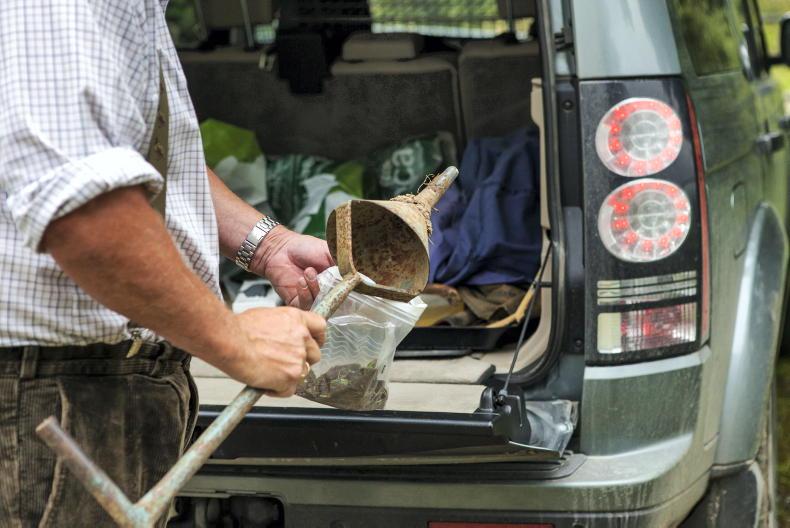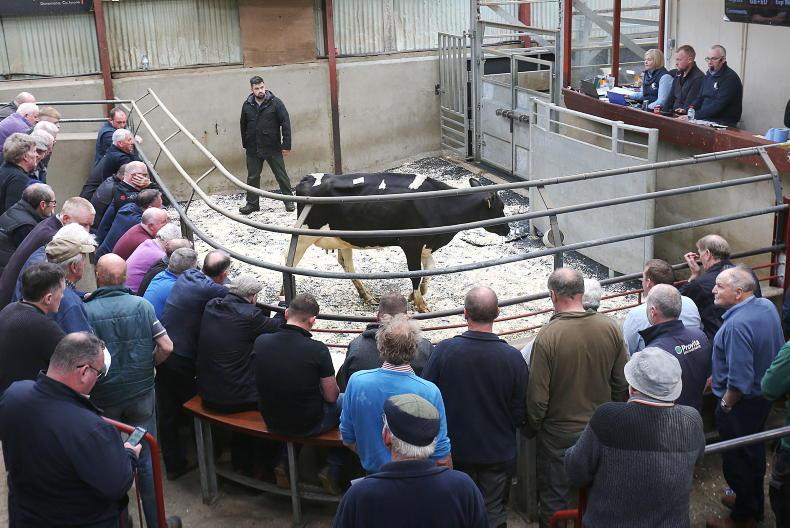Unspent funds from Ireland’s Brexit Adjustment Reserve (BAR) allocation could be returned to European Commission at the end of next year if the Government fails to come up with support schemes for the sectors most affected by Brexit, according to MEP Colm Markey.
The Fine Gael MEP told the Irish Farmers Journal that possibility of such a situation arising is compounded by an apparent lack of urgency in policymakers’ planning around sectors particularly affected by the UK’s exit from the EU, with Markey citing the agri-food sector as one of these.
“I would be frustrated myself on the delays with the Brexit Adjustment Reserve. The Brexit Adjustment Reserve the money has to be allocated by the end of 2023 and committed to spend by the end of 2023,” Markey said in Brussels this week.
“There need to be an urgency to ensure there is not unspent funds and there needs to be an urgency to ensure the sectors most affected – the food sector and the fish sector – that they are looked after.
“I certainly have been asking questions as regards the need to allocate as soon as possible,” the MEP and dairy farmer remarked.
Protocol planning
On the UK’s moves to table legislation which would allow it to unilaterally scrap the Northern Ireland Protocol, the MEP stressed that the legislative proposal would about a year at the very least to pass through the UK’s parliamentary system, although he did recognise that “everything is still on the table”.
This 12-month period is a “window there for things to change” allowing for UK-EU tensions on trade to cool, he said.
“Politically, things could change a lot in the UK in 12 months and that could change things as well. It is going to take 12 months for any actions by the UK to go through all stages [of legislative approval]. So there is that,” Markey said.
“Europe has indicated it will be flexible, that it will be as flexible as possible.”
Milk border
The Midlands-Northwest MEP also stated that both Ireland’s and the EU’s efforts should be focused on preventing a hard border, rather than preparing for one, which he said would require significant investment in the agri-food sector.
Markey reminded farmers in the North that losing participation in the single market would hinder or prevent the free movement of milk to processors south of the border.
“If we start making preparations for a milk border or two separate milk processing [systems], we are nearly enabling what we don’t want to happen,” he argued.
Fertiliser
On fertiliser cost and availability issues, Markey said in his comments to the Irish Farmers Journal that the time for preparing for a continuation of such challenges is now and “not in November”.
He stated that delays in the Commission’s decision on the removal of anti-dumping duties on fertilisers was disappointing, even though the removal of the duties would have limited effects in reducing fertiliser prices.
“Given the restrictions that could come on gas supplies in November, now is the time to get it right,” he went on.
If things are acted on in time, there are alternative sources that can be looked at – sources of both gas and particularly fertiliser.
“The duty issue is still there but that amounts to €30/t. That’s not going to sort things out. Outside of that there is potential to look at scaling up European capacity.
“I understand that some of the large European chemical companies would have unused capacity that could be used for fertiliser production. Now, the supply of gas to deliver on that is probably a question but there needs to be a look now at next year,” he said.
Read more
Green MEPs pushing for Mercosur deal changes to benefit farmers
Policymakers’ mindset has shifted towards food security – MEP
Beef producers need to fish in Brexit fund pond
Unspent funds from Ireland’s Brexit Adjustment Reserve (BAR) allocation could be returned to European Commission at the end of next year if the Government fails to come up with support schemes for the sectors most affected by Brexit, according to MEP Colm Markey.
The Fine Gael MEP told the Irish Farmers Journal that possibility of such a situation arising is compounded by an apparent lack of urgency in policymakers’ planning around sectors particularly affected by the UK’s exit from the EU, with Markey citing the agri-food sector as one of these.
“I would be frustrated myself on the delays with the Brexit Adjustment Reserve. The Brexit Adjustment Reserve the money has to be allocated by the end of 2023 and committed to spend by the end of 2023,” Markey said in Brussels this week.
“There need to be an urgency to ensure there is not unspent funds and there needs to be an urgency to ensure the sectors most affected – the food sector and the fish sector – that they are looked after.
“I certainly have been asking questions as regards the need to allocate as soon as possible,” the MEP and dairy farmer remarked.
Protocol planning
On the UK’s moves to table legislation which would allow it to unilaterally scrap the Northern Ireland Protocol, the MEP stressed that the legislative proposal would about a year at the very least to pass through the UK’s parliamentary system, although he did recognise that “everything is still on the table”.
This 12-month period is a “window there for things to change” allowing for UK-EU tensions on trade to cool, he said.
“Politically, things could change a lot in the UK in 12 months and that could change things as well. It is going to take 12 months for any actions by the UK to go through all stages [of legislative approval]. So there is that,” Markey said.
“Europe has indicated it will be flexible, that it will be as flexible as possible.”
Milk border
The Midlands-Northwest MEP also stated that both Ireland’s and the EU’s efforts should be focused on preventing a hard border, rather than preparing for one, which he said would require significant investment in the agri-food sector.
Markey reminded farmers in the North that losing participation in the single market would hinder or prevent the free movement of milk to processors south of the border.
“If we start making preparations for a milk border or two separate milk processing [systems], we are nearly enabling what we don’t want to happen,” he argued.
Fertiliser
On fertiliser cost and availability issues, Markey said in his comments to the Irish Farmers Journal that the time for preparing for a continuation of such challenges is now and “not in November”.
He stated that delays in the Commission’s decision on the removal of anti-dumping duties on fertilisers was disappointing, even though the removal of the duties would have limited effects in reducing fertiliser prices.
“Given the restrictions that could come on gas supplies in November, now is the time to get it right,” he went on.
If things are acted on in time, there are alternative sources that can be looked at – sources of both gas and particularly fertiliser.
“The duty issue is still there but that amounts to €30/t. That’s not going to sort things out. Outside of that there is potential to look at scaling up European capacity.
“I understand that some of the large European chemical companies would have unused capacity that could be used for fertiliser production. Now, the supply of gas to deliver on that is probably a question but there needs to be a look now at next year,” he said.
Read more
Green MEPs pushing for Mercosur deal changes to benefit farmers
Policymakers’ mindset has shifted towards food security – MEP
Beef producers need to fish in Brexit fund pond









SHARING OPTIONS